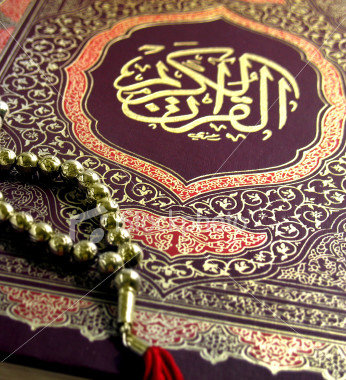Posts Tagged ‘Virtues of Ramadan’
- In: All | Allah الله | Audio Lectures | Islam | Lectures | Ramadaan | Ramadan
- Leave a Comment
Ramadan Lecture Series
By Sheikh Feiz. In this four part series Sheikh Feiz explains many of the virtues of Ramadan aswell as anwering many common questions asked on the rules of fasting in the month of Ramadan. Allah says in the Qur’an: ‘Oh you who believe Observing As-Saum (fasting) has been prescribed for you as it was prescribed for those before you, so that you may become Al-Muttaqun (the pious)’. [Surah Al-Baqarah 2:183]
Part 1 | Part 2 | Part 3 | Part 4 |
Listen Lecture :
Part I
Part 2
Part 3
Part 4
Download Lectures

Check Our Ramadan Resources


Join Us at
Ramadan Kareem || رمَضَان كريم
 [post this Article on your facebook wall,and share with friends.click above “Share” button …]
[post this Article on your facebook wall,and share with friends.click above “Share” button …]


[where ever you post,please add source link.either in website or even in facebook NOTE…please….spread the link of site..]

![]() Note:I’d love to see who visit my website,your views about website. Click here to leave your feedback.
Note:I’d love to see who visit my website,your views about website. Click here to leave your feedback.

- In: All | Allah الله | Audio Lectures | Islam | Lectures | Ramadaan | Ramadan
- Leave a Comment
Sprinting the Last Ten Days of Ramadan

“Verily, We sent it down in the night of al-Qadr. And what will make you know what the night of al-Qadr is? The night of al-Qadr is better than a thousand months. Therein descend the angels and the Spirit by their Lord’s permission with all Decrees. Peace! Until the appearance of dawn.”(Al-Qadr: 1-5)
Listen:
http://islamgreatreligion.net/ramadaan/ramadanvideos/10days.wmaLecture :
Download
Check Our Ramadan Resources


Join Us at
Ramadan Kareem || رمَضَان كريم
 [post this Article on your facebook wall,and share with friends.click above “Share” button …]
[post this Article on your facebook wall,and share with friends.click above “Share” button …]


[where ever you post,please add source link.either in website or even in facebook NOTE…please….spread the link of site..]

![]() Note:I’d love to see who visit my website,your views about website. Click here to leave your feedback.
Note:I’d love to see who visit my website,your views about website. Click here to leave your feedback.

Night Prayers in Ramadan/Fasting
Posted by: KING-slave of ALLAH ! on: August 17, 2011
- In: All | Allah الله | Islam | Prayers | Ramadaan | Ramadan
- 3 Comments
Qiyaam Al-Layl – The Night Prayer
All Praise is due to Allah, Who has made Salah a relaxation for the believer, a refuge for the fearful, and a guidance for the savage. May the peace and blessings of Allah be upon the leader of those who perform salah, perform tahajjud, and make rukoo and sujood. And also upon his family, companions, and those who follow them in the right way until the day of judgment.
As for what follows:
Night prayer is the diligence of the righteous, the transaction of the believers, and the action of the victorious. At night the believers are alone with their Lord – they turn towards their Creator complaining about their situations and asking of His bounties. They are standing in front of their Lord, devoted to the confidential talk with their Shaper, gently breathing the fragrances, taking from the lights of the good deeds, and seeking and begging for the greatest of gifts.
Night Prayer in the Quran
Allah the Most Exalted said:
“They arise from [their] beds” [Holy Quran 32:16]
Mujahid and AlHasan said: “it means night prayer”.
Ibn Kathir explained the verse: “The meaning is night prayer, leaving sleep and rest upon a soft and flat furnishing.
AbdulHaq al Ashbeeli said: “Their sides find no rest upon a bed. So they are not settled on it because of the fear of the punishment, and hoping for reward.”
Allah the Exalted mentioned about the people who make tahajjud:
“They used to sleep but little of the night, And in the hours before dawn they would ask forgiveness “
[Holy Quran 51:17-18]
AlHasan said: “They burdened themselves with the night. They extended the salah until the early dawn, then they sat making dua and seeking forgiveness.”
Allah said:
“Is one who is devoutly obedient during periods of the night, prostrating and standing [in prayer], fearing the Hereafter and hoping for the mercy of his Lord, [like one who does not]? Say, “Are those who know equal to those who do not know?” Only they will remember [who are] people of understanding.” [Holy Quran 39:9]
In other words: Is the one whose character is this, similar to the one who sleeps at night and wastes himself? Can he be anything other than one who is knowledgeable about Allah’s rewards but ignorant of His punishments?
My brothers and sisters: Where are the people of the night? Where have the virtuous gone, and only the idle and inactive are left?!
Oh people of the night exert yourselves [Seeking] A Lord who does not refuse when asked
Night Prayer in the Sunnah
My dear Muslim brother/sister: The Prophet (peace be upon him) encouraged making night prayer and arousing interest in it.
“It is upon you to perform night prayer, because it was the practice of the righteous people before you. It is a means of obtaining closeness to Allah the Exalted, it erases sins, it prevents wrongdoings, and it drives away sicknesses from the body .” [Narrated by Ahmad, AlTirmidhi, and graded saheeh by AlAlbaani]
The Prophet (peace be upon him) said about the condition of Abdullah ibn Umar: “How excellent Abdullah is! If only he would pray salah at night ” [Agreed upon]
Saalim ibn Abdillah ibn Umar said: “After that, Abdullah slept very little at night.”
The Prophet (peace be upon him) said: “There is a room in Jennah where the exterior is seen from the interior, and the interior is seen from the exterior. “
Someone said: “Who is it for, Messenger of Allah?”
He said: “It is for the one whose speech is pleasant, he feeds others, and he spends the night standing while the people are asleep ” [Narrated by AlTabarani, AlHaakim, and graded saheeh by AlAlbaani]
The Prophet (peace be upon him) said: “Jibreel came to me and said: ‘Oh Muhammad: Live as you wish for you will die. Love whom you will for you will be separated. Do as you will for you will be recompensed for it. Know that the most honored of the believer is his standing at night, and his prestige is in not needing
anything from the people ” [Narrated by AlHaakim and AlBaihaqi. It has been graded hasan by AlMundhiri and AlAlbaani]
He (peace be upon him) said: “Whoever stands at night and recites ten ayaat is not recorded among the heedless. Whoever stands at night and recites one hundred ayaat is recorded among the pious. Whoever stands and recites one thousand ayaat is recorded among those who received a huge quantity of good deeds .” [Narrated by Abu Dawood and graded saheeh by AlAlbaani]
Someone told the Prophet peace be upon him) about a man who slept the night until morning time. He said “That is a man in whose ear the Shaytan urinated! ” [Agreed upon]
The Prophet (peace be upon him) said: “The best prayer after the obligatory ones is night prayer” [Narrated by Muslim]
Night Prayer of the Prophet Peace Be Upon Him !
Allah the Most Exalted ordered His Prophet to perform night prayer in the following:
“O you who wraps himself [in clothing], Arise [to pray] the night, except for a little – Half of it – or subtract from
it a little. Or add to it, and recite the Qur’an with measured recitation.” [Holy Quran 73:1-4]And He said:
“And from [part of] the night, pray with it as additional [worship] for you; it is expected that your Lord will
resurrect you to a praised station.” [Holy Quran 17:79]
Aisha, may Allah be pleased with her, said: “The Prophet would stand at night until his feet became cracked. I said to him: Why do you do this oh Messenger of Allah, while all of your sins past and future have been forgiven? He said: Shouldn’t I be a thankful slave? ” [Agreed upon]
This proves that thankfulness is not only by the tongue. It is only done by the heart, the tongue, and the limbs. The Prophet (peace be upon him) established the duties of worship in the most complete manner, and in the most perfect form. He did all of this despite the fact that he had to spread the Islamic Aqeedah, teach the Muslims, exert himself in the path of Allah, and fulfill the duties of his family and children.
He was as Ibn Rawaha said:
Among us is the Messenger of Allah reciting His book When the courtesy is separated from the morning, glowing.
He showed us guidance after blindness, so our hearts Are full of certainty that what he said is reality.
He spends the night separated from his bed When the beds are heavy with the idol-worshippers.
Hudhaifa said: “I prayed with the Prophet one night. He started with AlBaqara, so I thought that he will make rukoo after that. Then he started AlNisaa and recited it. Then he started Aal-Imraan and recited it. He would recite slowly; when he came to an ayaa with Tasbeeh, he would make Tashbeeh. When he came to a request, he would request. When he came to a seeking of refuge, he would seek refuge…. “
[Narrated by Muslim]
Ibn Masood said: “I prayed one night with the Prophet. He continued standing until I thought of a bad idea.
Someone said: What did you think of doing? He said: I thought to sit down and leave him! ” [Agreed upon]
Ibn Hajar said: “In this hadeeth is proof that the Prophet (peace be upon him) chose to prolong the night prayer. Ibn Masood was strong-willed in preserving his emulation of the Prophet (peace be upon him). He did not think of sitting down until the prayer was much longer than he was used to.”
Night Prayer & Early Muslims
Imam AlHasan AlBasri said: “I did not find any worship more powerful than salaah in the middle of the night”.
Abu Uthmaan AlHindi said: “I was the guest of Abu Huraira for seven [days]. He, his wife, and his servant would divide the night into three parts, praying one part and staying awake for another part”.
When Shaddad ibn Aws would go to bed, he would be like a grain in a frying pan. Then he would say: “Oh Allah, hell-fire does not stop me from sleeping”. Then he would stand to pray.
Taawus would strongly awaken his family, then he would make wudhu and face the qibla until morning. He would say “The sleep of the worshipers has caused them to completely stop remembering the hell-fire!”
Zum’a al-Aabid would pray long hours of the night. When dawn would approach, he would raise his voice and announce: “Oh riders of the beds, are you going to sleep and waste away the entire night? Will you not get up and leave the bed!” He would then hear crying from one place, a person making dua from another place, and someone making wudu from another place. When fajr time would come, he would say: “At the morning time, the people are thankful for the announcement”
The levels of the early Muslims with regards to Night Prayer
Imam Ibnul Jawzi said: You should know that the early Muslims were at one of seven levels with regards to night prayer:
Level one: These would stay up the entire night. Some of them would pray Fajr with the same wudu as Isha.
Level two: These would pray half of the night.
Level three: These would pray one-third of the night. The Prophet peace be upon him) said: ” The most beloved salah to Allah The Exalted is the salah of Dawud. He would sleep half of the night, pray one-third, and sleep one-sixth”. [Agreed upon]
Level four: These would pray one-sixth of the night or one-fifth.
Level five: These would not specify an amount of the night. He would only pray until he became sleepy, and would then sleep. When he woke up, he would pray.
Level six: These would pray two or four rakah.
Level seven: These would stay awake between the two Isha times [the early time for Isha and the later, recommended time], and they would sweeten their mornings [with dua]. This way, they would join the night and morning. The Prophet (peace be upon him) said: ” Indeed in every night is a time wherein if the worshipper asks Allah for something good, He will give it. And this is in every night.” [Narrated by Muslim]
Factors that make night prayer easy Imam Abu Hamid AlGhazali mentioned some external and internal factors that make Night Prayer easy.
External factors are four:
That the individual should not eat or drink too much. Then sleep will overpower him, and waking up will be difficult.
The person should not tire himself in the daytime with things of no benefit.
He should not avoid the mid-day nap because it helps with regards to waking up.
He should not make sins in the daytime because that will prevent him from night prayer.
Internal factors are four:
The heart should be free from these: malice towards the Muslims, bid’as, and excessive worldly interests.
The heart should have a lot of fear and not too much hope.
He should know the benefits of night prayer.
The best motivation: Love of Allah, and having strong Eman that in his prayer every letter that he utters is freeing him from the punishment of his Lord.
Night Prayer in Ramadan
Night prayer in Ramadhan is Salah at-Taraweeh which the Muslims perform during Ramadhan. It is one of the greatest acts of worship by which the worshippers seek to come closer to Allah in that month.
Al-Hafidh ibn Rajab said: “You should know that in Ramadhan the believer combines two actions by which he struggles against himself: during the day-time by fasting, and during the night-time by night prayer. Whoever combines these two forms of struggle receives his reward without any account.”
Shaikh Ibn Uthaimeen said: “Salah at night during Ramadhan has benefits and merits not found in other times. The Prophet (peace be upon him) said: ‘Whoever makes night prayer during Ramadhan, with Eman and hoping for reward from Allah, all his previous sins are forgiven. ‘. [Agreed upon]
Night prayer during Ramadhan is inclusive of salah in the early as well as late part of the night. For this reason, Taraweeh is part of night prayer during Ramadhan. It is necessary to seek it, to protect it, and to hope for reward from Allah because of it. It is only during a limited number of nights, so the intelligent believer takes advantage of the opportunity before it is lost.”
Salah at-Taraweeh has been legislated as a congregation in the mosques. The Prophet (peace be upon him) was the first to start the Sunnah of Salah at-Taraweeh in the mosque, but then he left it out of fear that it would become obligatory on the people. When the Prophet (peace be upon him) left this world and went to be with his Lord, the Sharia was completed and there was no fear of Taraweeh becoming obligatory. Its religious nature as a congregational salah has remained and is established.
It is necessary for the Muslims to take care of this salah and offer it completely, and have patience for the sake of Allah the Exalted.
Shaikh Ibn Uthaimeen said: “No one should fall behind in obtaining the rewards of salah at-Taraweeh. He should not leave until the Imam finishes it and Witr, so that he obtains all the reward for praying at night.”
It is allowed for the women to attend salah at-Taraweeh in the mosques so long as there is no danger, whether from them or against them. But it is necessary that she attends covered and wearing hijab, not showing off, perfumed, raising her voice, or displaying her beauty.
It is from the sunnah that they stand behind the men and away from them. They should begin with the last row because that is the opposite from men. They should leave the masjid right after the Imam makes tasleem and not stay unless due to some necessity.
This is because of the Hadith of Umm Salama (may Allah be pleased with her) who said:
“When the Prophet would make salaam, the women would get up when he finished tasleem. He would stay in his place for a little while before he would stand. She said: We think, and Allah Knows Best, that this was so that the women could depart before the men would catch up to them .” [Narrated by Al-Bukhari]
May the peace and blessings of Allah be upon our Prophet, his family, companions, scholars, and all the
Ummah.
Check Our Ramadan Resources


Join Us at
Ramadan Kareem || ??????? ????
 [post this Article on your facebook wall,and share with friends.click above “Share” button …]
[post this Article on your facebook wall,and share with friends.click above “Share” button …]


[where ever you post,please add source link.either in website or even in facebook NOTE…please….spread the link of site..]

![]() Note:I’d love to see who visit my website,your views about website. Click here to leave your feedback.
Note:I’d love to see who visit my website,your views about website. Click here to leave your feedback.

- In: All | Allah الله | Audio Lectures | Islam | Lectures | Ramadaan | Ramadan
- Leave a Comment
Fruits Of Ramadan :: Audio Lecture

One of the scholars said: The person who is fasting must fast with his eyes and not look at anything that is not permissible; with his ears and not listen to anything that is not permissible; with his tongue and not speak any obscene words or slander any one or tell lies or backbite. The believer should make the most of this blessed month in which the devils are chained up, the gates of Paradise are opened and the gates of Hell are closed, and a caller cries out, “O seeker of good, go ahead; O seeker of evil, desist!” The believer should make the most of this month so that he may draw closer to Allaah, repent sincerely from all his sins and make a pledge to Allaah to adhere to His religion and laws.
![]()
Download Part 1
Download Part 2
Check Our Ramadan Resources


Join Us at
Ramadan Kareem || رمَضَان كريم
 [post this Article on your facebook wall,and share with friends.click above “Share” button …]
[post this Article on your facebook wall,and share with friends.click above “Share” button …]


[where ever you post,please add source link.either in website or even in facebook NOTE…please….spread the link of site..]

![]() Note:I’d love to see who visit my website,your views about website. Click here to leave your feedback.
Note:I’d love to see who visit my website,your views about website. Click here to leave your feedback.

- In: All | Allah الله | Islam | Ramadaan | Ramadan | Special Islamic Reminders
- 7 Comments
6 Ways to Kill Bad Breath Whilst Fasting
Source: ProductiveRamadan.com

I don’t need to say much about bad breath in Ramadan, we’ve all experienced it (either from others or ourselves) and it’s becoming a serious issue that needs to be tackled as it affects our self-confidence (and hence our productivity).
Firstly, it should be noted that the smell that comes from the fasting person’s mouth as a result of the fast is not something to be disliked, because it is the effect of obedience to Allaah. In the hadeeth it says that “the smell from the fasting person’s mouth is better in the sight of Allaah than the fragrance of musk.” Unfortunately, this hadeeth is often misunderstood as an excuse to drop all forms of oral hygiene during Ramadan! That shouldn’t be the case. We need to put the effort in and take care of our oral hygiene as best as we can, and if any bad smell still emanates then we should remember the above hadeeth and try to be patient. The biggest evidence that oral hygiene is important especially during Ramadan is the example set by our Prophet Muhammad (Peace be upon him) who used to use the siwak often whilst fasting.
So what can we do to reduce or eliminate bad breath whilst fasting? Here are 6 practical tips (adopted from beating-bad-breath-during-ramadan)
1. Clean Your Tongue
No, not with a brush, but with a special tongue scraper (Yes I know, didn’t know they existed before either!). Gently cleaning the tongue twice daily is the most effective way to keep bad breath in control; it wipes off the bacterial biofilm, debris, and mucus. Ask your dentist to recommend a scraper suitable for your tongue.
2. Brush Regularly
Brush regularly for at least four minutes, twice a day. Get a timer and make sure that you don’t put that brush down until you hit the 4 minute mark! When brushing we should clean our teeth and gums, cleaning even more thoroughly after eating or drinking milk products, fish and meat – especially at suhur time.
3. Floss often
Flossing should be implemented daily and choose unscented floss so that you can detect those areas between your teeth that give off odours, and clean them more carefully
4. Miswak
The fasting person should use miswak throughout the day. The miswak (miswaak, siwak, sewak) is a teeth cleaning twig made from a twig of the Salvadora persica tree, also known as the arak tree (or peelu tree). Using miswak is both rewardable and effective:. Numerous international studies have been done that prove the effectiveness of miswak for oral hygiene and has been highly recommended by Prophet Muhammad (Peace be upon him).
He said: ‘Make a regular practice of the Miswaak, for verily, it is healthy for the mouth and it is a Pleasure for the Creator (i.e. Allah is pleased with the Muslim who uses the Miswaak)” [Bukhari]
5. Drink lots of Water (before and after fasting)
Bad breath seems to be more potent when fasting due to the dryness of the mouth. To reduce this drink plenty of fluids during the evening and suhur time. If you are a denture wearer, it would be advisable for you to soak the denture in an antiseptic mouthwash overnight.
6. Regular visits to your dentist
Regular visits to the dentist throughout the year are also essential although we may not enjoy them. There may be cavities, broken fillings, spacing between teeth, or pockets that may be allowing food packing which may in itself be causing a foul smell.
So in conclusion, if you want to beat the bad breath during Ramadan, then clean your tongue, brush thoroughly (especially after those meat and fish curries!) and drink plenty of fluids whenever you can.
Source: ProductiveRamadan.com
Check Our Ramadan Resources


Join Us at
Ramadan Kareem || رمَضَان كريم
 [post this Article on your facebook wall,and share with friends.click above “Share” button …]
[post this Article on your facebook wall,and share with friends.click above “Share” button …]


[where ever you post,please add source link.either in website or even in facebook NOTE…please….spread the link of site..]

![]() Note:I’d love to see who visit my website,your views about website. Click here to leave your feedback.
Note:I’d love to see who visit my website,your views about website. Click here to leave your feedback.

- In: All | Allah الله | E-Books | Islam | Prayers | Ramadaan | Ramadan
- 2 Comments
The Night Prayer in Ramadan

By Imaam Muhammad Naasir-ud-Deen Al-Albaanee (Died 1420H). The main core of the book, however, contains a point-by-point discussion on the Night Prayer in Ramadan, as well as the benefits and rulings of ‘Itikaaf, along with their evidences. The Arabic text for all ayaat and ahaadeeth have also been included in this edition so as to increase the benefit for those readers who wish to memorize the proofs.
Download

Check Our Ramadan Resources


Join Us at
Ramadan Kareem || رمَضَان كريم
 [post this Article on your facebook wall,and share with friends.click above “Share” button …]
[post this Article on your facebook wall,and share with friends.click above “Share” button …]


[where ever you post,please add source link.either in website or even in facebook NOTE…please….spread the link of site..]

![]() Note:I’d love to see who visit my website,your views about website. Click here to leave your feedback.
Note:I’d love to see who visit my website,your views about website. Click here to leave your feedback.












































 Oh Allah,Please Forgive me
Oh Allah,Please Forgive me Ex-Christians-Now Muslim,Alhamdulillah
Ex-Christians-Now Muslim,Alhamdulillah I Love My Prophet Muhammad s.a.w
I Love My Prophet Muhammad s.a.w
















![Fake Grave of Prophet Muhammad [pbuh]](https://islamgreatreligion.files.wordpress.com/2009/07/prophet_muhammad_pbuh_tomb4.jpg)


















Recent Comments